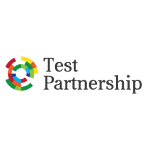HR professionals require efficient and insightful methods to evaluate candidates. Online assessment platforms have emerged as a powerful tool, offering a range of benefits beyond traditional paper-based assessments. These platforms streamline the evaluation process, provide valuable data-driven insights, and ultimately contribute to better hiring decisions. However, with a multitude of options available, selecting the right platform can be a challenge. This guide provides a comprehensive framework to help HR professionals navigate the key factors for consideration.
Identifying Your Assessment Needs
The foundation of choosing the right platform lies in clearly defining your assessment goals. Here are key considerations:
-
Type of Assessments:
-
Job Skill Assessments: Identify the specific skills required for the target position. Will you be evaluating technical skills (e.g., coding), soft skills (e.g., communication, teamwork), or a combination of both? Platforms that support simulations, coding tests, or situational judgment questions may be necessary.
-
Personality and Aptitude Assessments: These assessments may be used to gauge cultural fit, leadership potential, or specific aptitudes. Look for platforms that offer validated psychometric tools and comprehensive reporting features.
-
-
Candidate Base:
-
Technical Proficiency: Consider the technical skills of your candidate pool. Younger generations may be comfortable with more interactive platforms, while older demographics might require a more user-friendly interface.
-
Integration with Existing Systems: Does the platform integrate seamlessly with your Applicant Tracking System (ATS) or other HR tools? Streamlined data flow can significantly improve efficiency.
Essential Features for Effective Assessments
Once you have a clear understanding of your needs, focus on the core functionalities that a robust platform should offer:
-
Question Creation and Management:
-
Question Variety: The platform should support a diverse range of question formats, including multiple-choice, short answer, essays, and potentially video or audio components.
-
Question Banks: Efficient test creation hinges on the platform's ability to store and reuse previously created questions. Look for functionalities that allow for easy categorization and retrieval of questions.
-
-
Assessment Delivery:
-
Test Security: A secure testing environment is crucial. Features like browser lockdown, remote proctoring options, and secure access controls ensure the integrity of the assessment process.
-
Timed Assessments: The ability to set time limits helps standardize testing conditions and manage the duration of assessments effectively.
-
Automated Scoring: For objective question types, automated scoring saves time and minimizes human error.
-
Detailed Analytics: In-depth reporting features are essential. Look for platforms that provide breakdowns of candidate performance, item analysis, and trend identification over time.
-
Scoring and Reporting:
Additional Considerations for Long-Term Success
Beyond the core functionalities, consider these additional factors to ensure a long-term positive experience:
- Security and Data Protection: Compliance with relevant data privacy regulations (e.g., GDPR, FERPA) is paramount. Strong data encryption safeguards sensitive candidate information.
- Scalability and Integration: Choose a platform that can adapt to your evolving needs. Consider potential growth in your user base and the frequency of assessments. Seamless integration with existing HR tools streamlines workflows.
- Customer Support: Reliable customer support is essential. Look for platforms with multiple support channels, including live chat, email, and phone support, to ensure prompt assistance when needed.
Look Beyond the Big Names
The online assessment platform market has seen a significant shift in the past decade. While established players like SHL have a long history in the space, a wave of new assessment providers has emerged offering excellent SHL alternatives. These innovative companies are offering excellent quality assessments with a focus on candidate experience and comprehensive support, often at a more competitive price point compared to the industry giants.
This influx of new providers presents a valuable opportunity for HR professionals. Don't feel pressured to choose the biggest name in the market. By exploring these, for example, Clevry alternatives or Criteria Corp alternatives, you might discover features and functionalities that better align with your specific needs and budget. Many of these platforms prioritize a user-friendly interface for both HR professionals and candidates, making the assessment process smoother for everyone involved. Additionally, their focus on strong customer support ensures you have the resources needed to navigate the platform and interpret the results effectively.
Remember, the best recruitment tool is not necessarily the most well-known. By carefully evaluating the features, pricing, and support offered by both established and emerging providers, HR professionals can make an informed decision that optimizes their recruitment process and delivers the best possible candidate experience.







